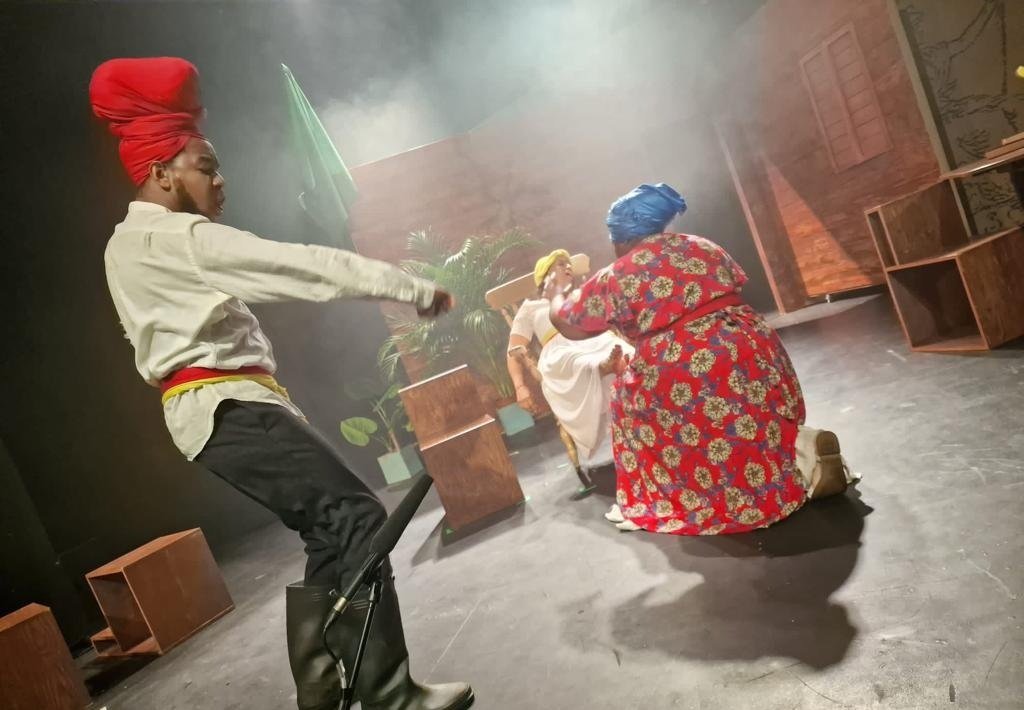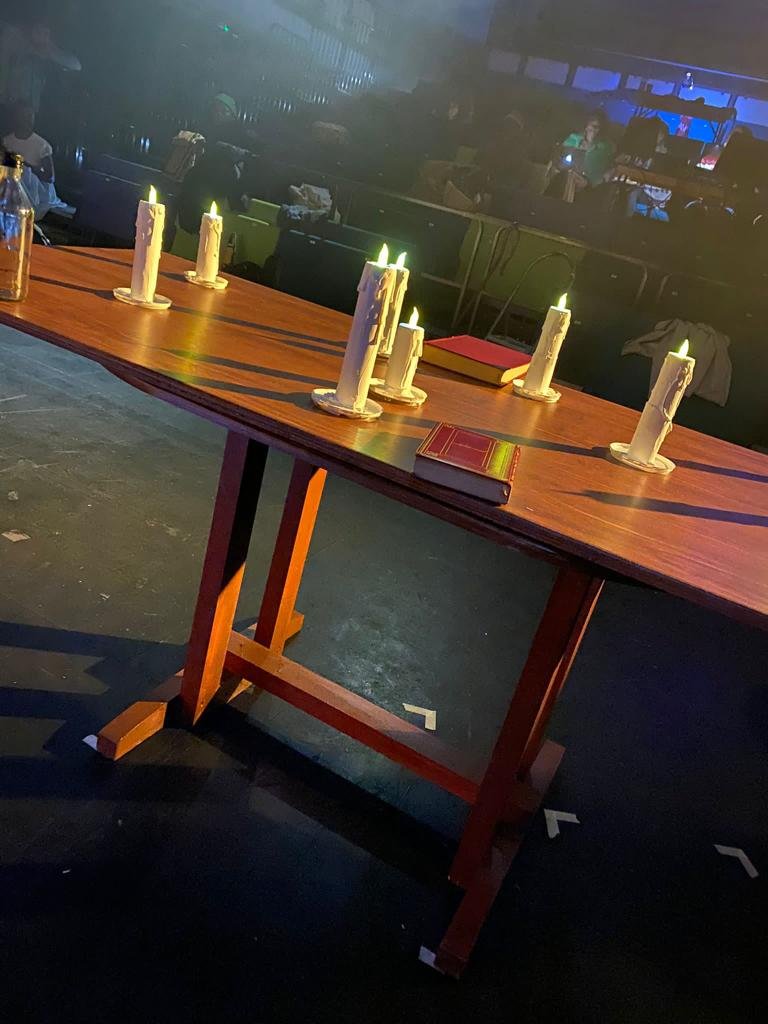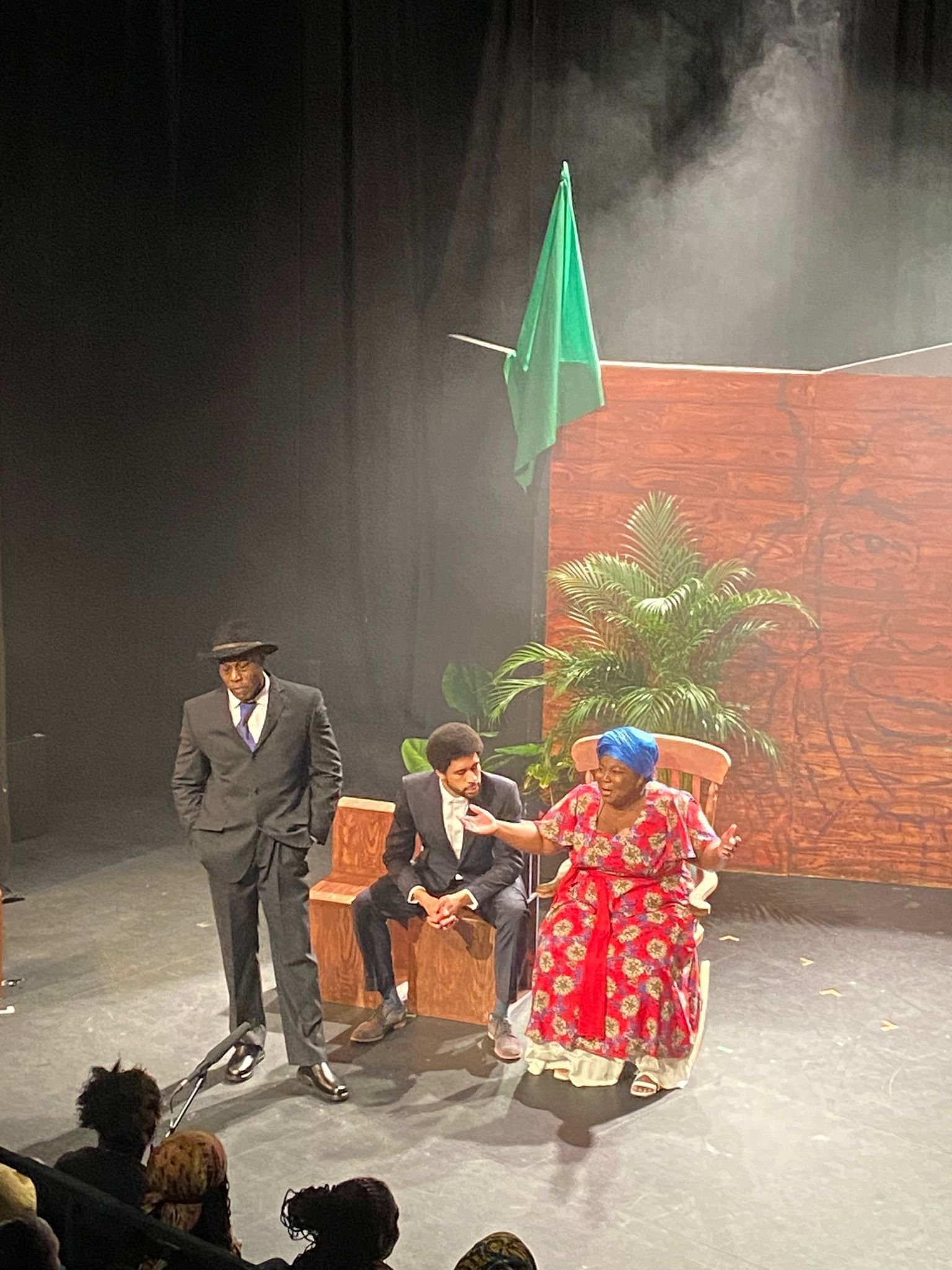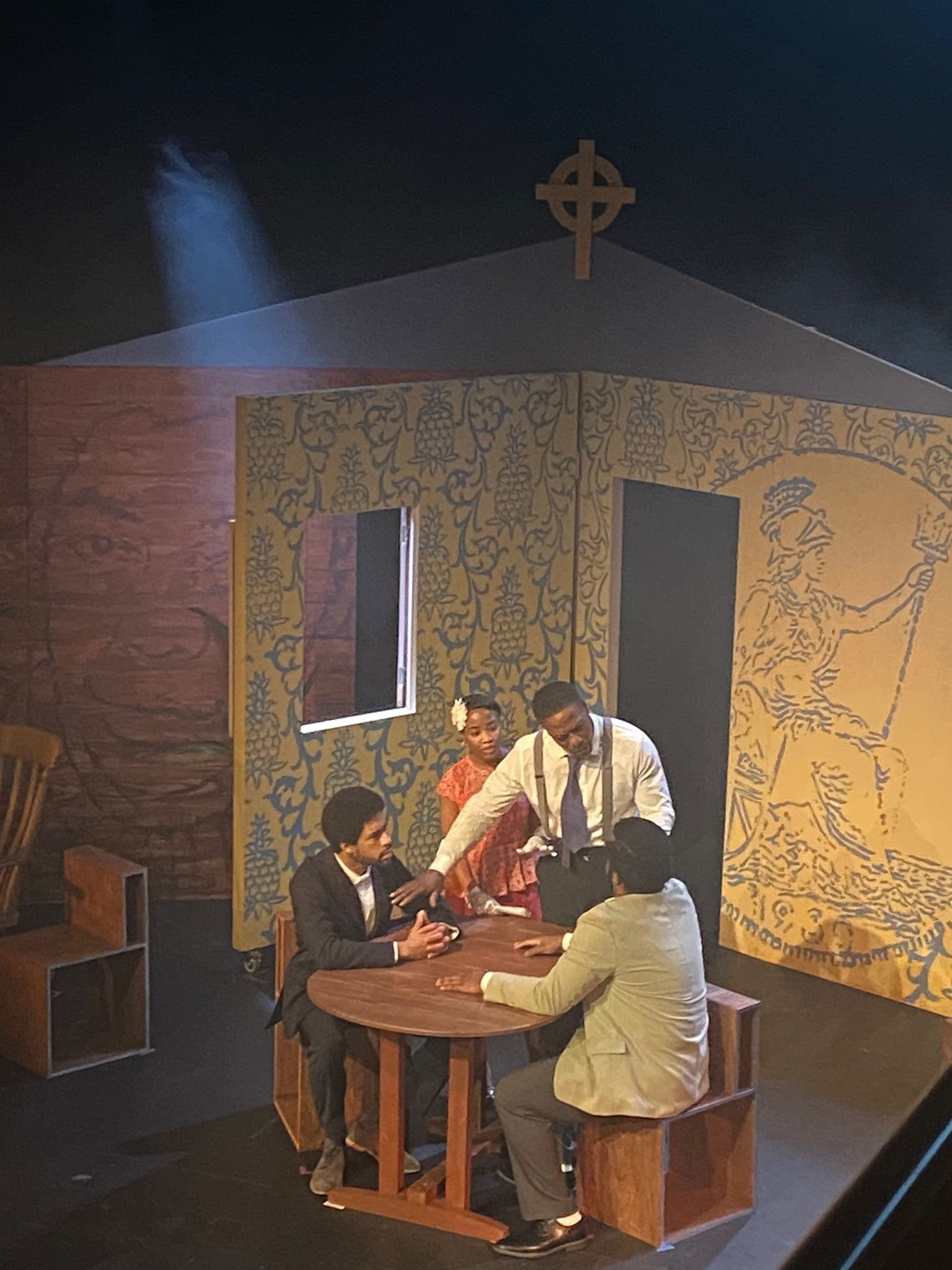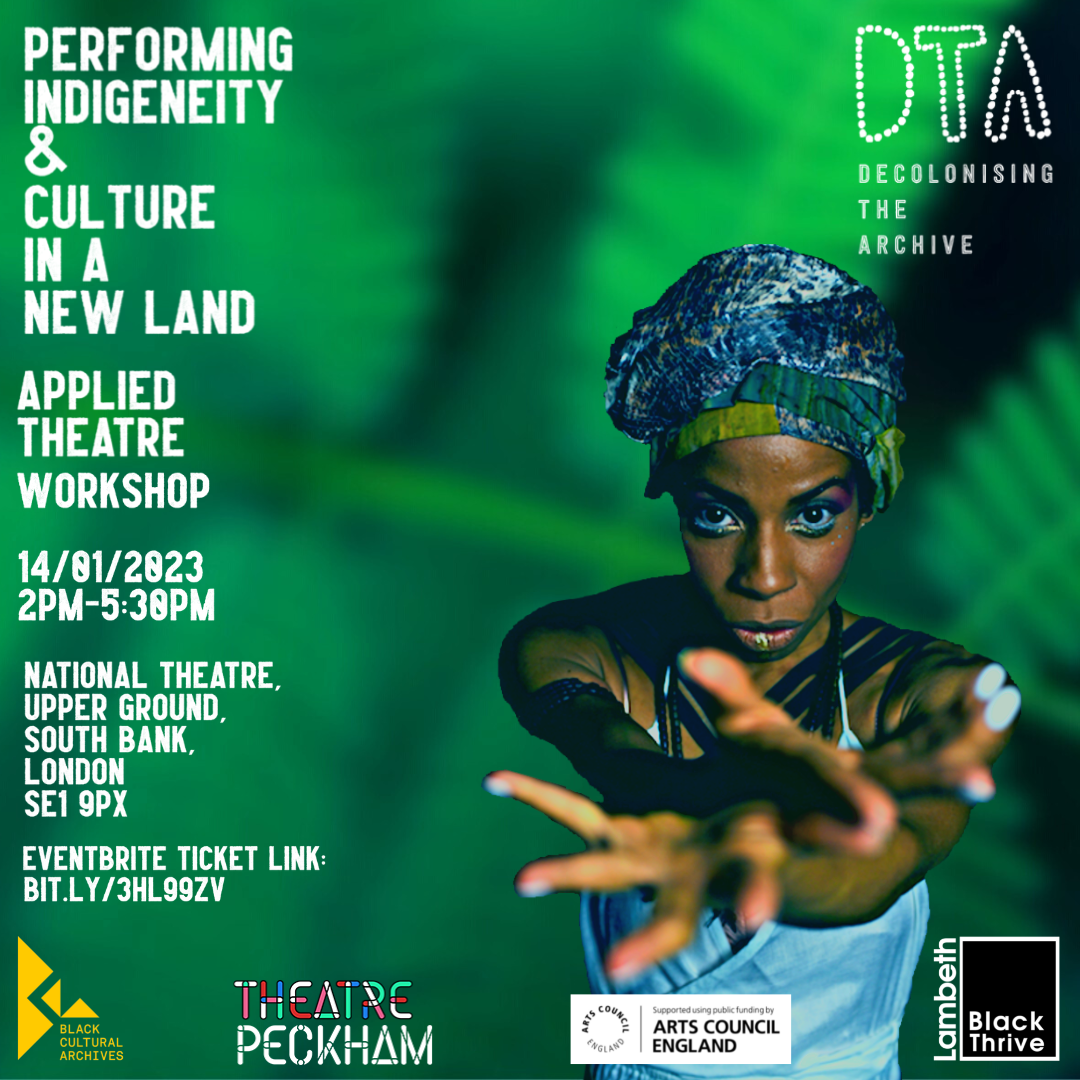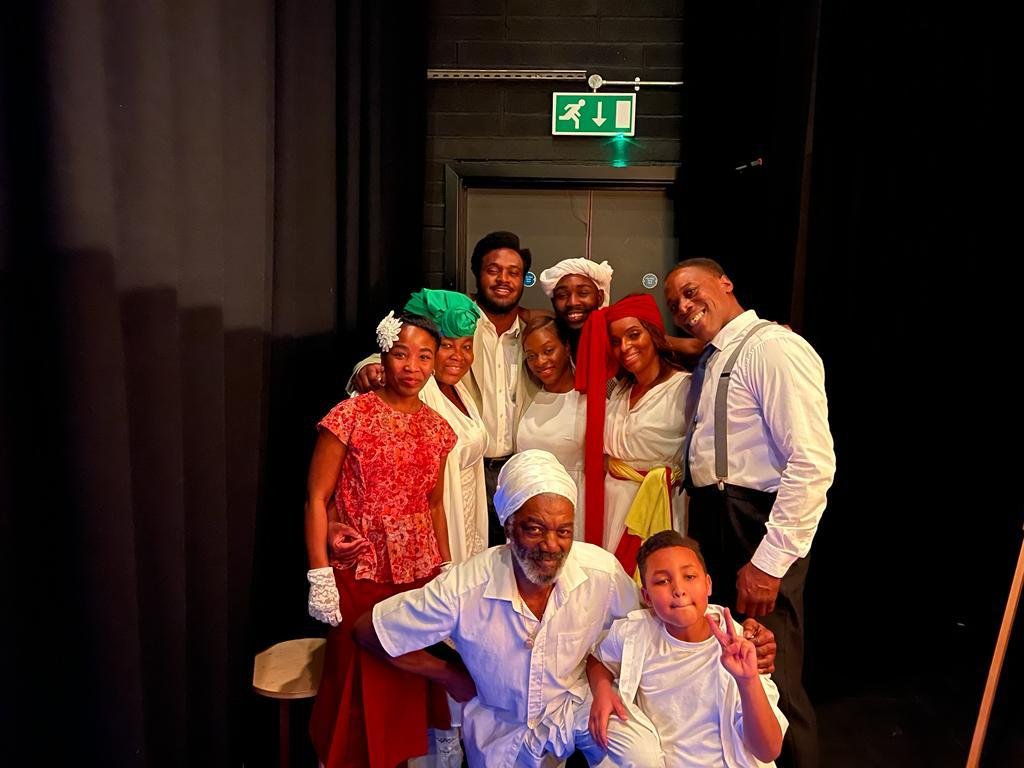POCOMANIA
In 2023 Decolonising the Archive revived Una Marson’s long lost play, Pocomania, bringing it to a British stage for the first time in history and 85 years after its debut at the Ward Theatre, Kingston, Jamaica.
The play fuses theatre, music, movement, and deep-rooted cultural forms. Through its unique characters, it explores themes such as neo-traditional African religion, class and mental wellbeing.
Scroll down to learn more about the production and information to access a full copy of the recorded performance, archives and lectures on this play.
POCOMANIA + MENTAL HEALTH
This staging of Pocomania coincided with work at the Black Cultural Archives in Brixton to make the archive of Melba Wilson’s ground-breaking work concerning mental health accessible to the public. 25% of tickets to see Pocomania were free and reserved for mental health service users.
Pocomania addresses mental health in African heritage communities and the ruptures occurring due to migration, displacement and cultural erasure. The word "Pocomania" is derived from ‘Pukkumina’ meaning ‘little madness’.
We partnered with the National Theatre to create a community engagement programme that provided theatre workshops to provide new ways for Black audiences and theatre practitioners to access and engage with conversations around mental health.
Applied Theatre: Performing Indigeneity and Culture in a New Land’
‘Reparative Theatre as a Community Response
MENTAL HEALTH - STATISTICS
Mistreatment, inequality and lack of preventative measures are contributing to the epidemic of ill-mental health in Black communities, including institutional racism. Research has shown in recent years that:
Black people in Britain are more likely to be detained under the Mental Health Act than white people (over 4x in 2022) - with many instances of wrongful arrests.
Black men are 17 times more likely to be diagnosed with a serious mental illness than their white counterparts.
Black women are the group most likely to experience a common mental health disorder such as depression and anxiety
Black people are also more likely to experience risk factors associated with ill-mental health such as misdiagnosis, school exclusions, homelessness, poverty, contact with the Youth Justice System, and many more.
How do we as a community create discourse and change around this urgent matter?
The playwright, Una Marson’s negative experience of systematic and interpersonal racism whilst living in Britain in the first half of the 1900s, contributed to the decline in her mental wellbeing. Pocomania was written directly following her departure from Britain. We recognise the healing potential of the themes Marson employed in writing Pocomania to speak to the specific issues faced by our communities.
The 2023 run of Pocomania was a collaborative project between Decolonising the Archive (DTA) and Black Cultural Archives (BCA), having previously worked together to explore Una Marson's legacy.
ABOUT THE PLAYWRIGHT:
UNA MARSON
Miss Lou aka Louise Bennett (1919-2006) was a famous Jamaican folklorist
Una Maud Marson was a playwright, journalist, poet and activist between 1905-1965, and became a pioneer of her time. Born on 6th February 1905 in the parish of St Elizabeth, Jamaica, with eight older siblings, she was an avid reader from a young age. She later became the first Black woman to be employed by the BBC, during World War II. In 1942, she became producer of the programme “Calling the West Indies”, turning it into “Caribbean voices” which became an important platform for Caribbean literary work. She highlighted and campaigned against the racism she and others faced.
Some of Marson’s collection of Caribbean folklore and literature
Una Marson contributed much to shaping her country’s cultural identity through promoting Caribbean culture and the unity of black people globally. This is reflected in her play, Pocomania (1938), which explores the distinctly Jamaican form of worship and culture derived from both African spiritual practices and European forms of Christianity. During the 1930s, there was a strict adherence and promotion of English literature, history and culture in the schools and cultural institutions of Jamaica, which like many other nations, was still a colony of the British Empire. African culture and heritage was supressed and denigrated.
The Ward Theatre, Kingston, Jamaica
Pocomania was part of a cultural revolution beginning in the mid 1900s, in which the Africanness of Jamaican ancestry and culture became more visible as a Jamaican national identity began to be promoted. Within a similar timeframe, Miss Lou (Louise Bennett) foregrounded Jamaican folklore, recognising Jamaican Patois as a cultural language with African influence.
PRODUCTION DEVELOPMENT: EXCERPT OF A PRE-PRODUCTION READING
MEET THE CAST & CREW
SPECIAL THANKS TO
Ruth Harvey
South London Gallery
Sam Fisher
The Rainbow Bakery
Forage and Feast
Caroline Hicky
Theatre Peckham
Black Thrive
Selina Rose
Kobna Holbrook-Smith
Shango Baku
Avril Russell
Tara Povey
Tanya Baxton Savage
Amina Yussuf
Ayo Harty-Clarke





